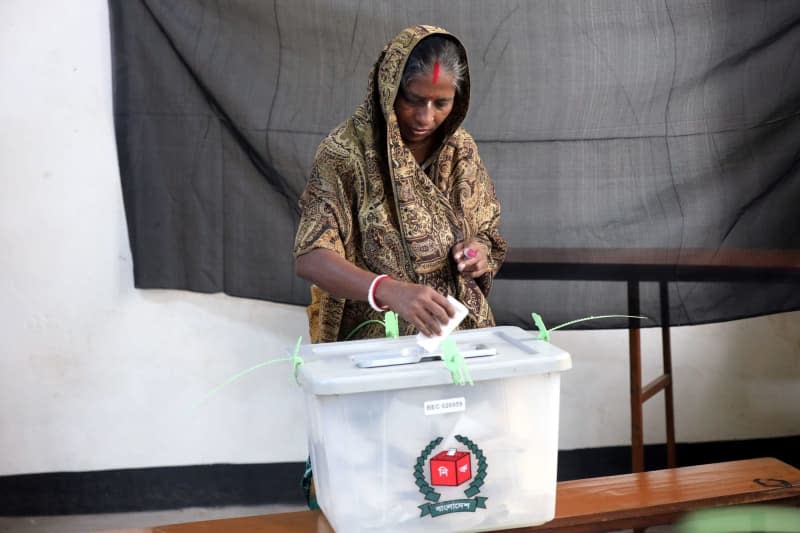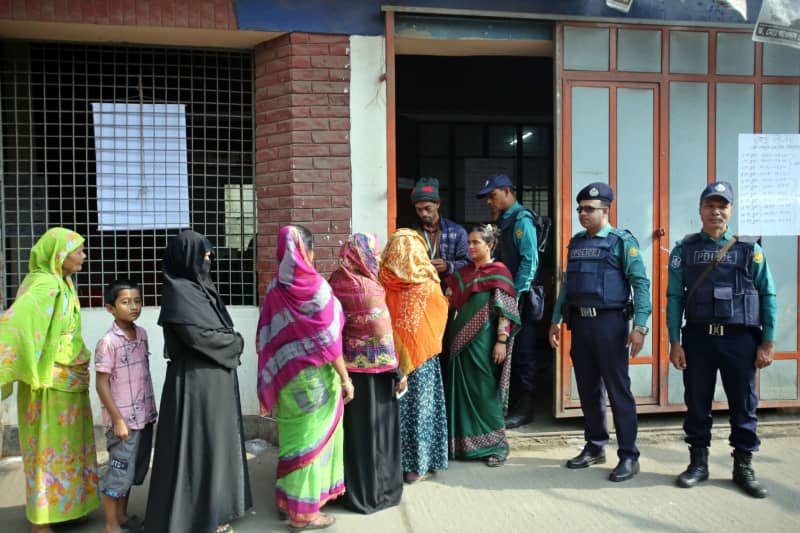Low turnout, violence mar Bangladesh election boycotted by opposition

Low turnout and sporadic incidents of violence marred Bangladesh’s parliamentary election, which was boycotted by the main opposition party, as voting across the country ended on Sunday.
Turnout was more or less 40%, Chief Election Commissioner Kazi Rakibul Awal told a news conference after the polls were closed, compared to more than 80% in the 2018 general election.
He said his office had tried its level best to ensure fairness in the election.
“There has been no report of death out of election-related violence,” he said, adding that his office was verifying allegations of vote rigging and falsification in some places.
The counting of the ballots has started, and the results would start coming in from across the country in five hours, he said.
The polling stations were opened in the morning across Bangladesh for the country's 12th parliamentary election in 299 out of 300 constituencies for eight hours.
The opposition Bangladesh Nationalist Party (BNP) of former prime minister Khaleda Zia and its right-wing allies boycotted the election, fearing that the polls would be rigged.
They had demanded the resignation of Prime Minister Sheikh Hasina and the installation of a non-party caretaker administration to ensure the election was credible.
The BNP called a nationwide general strike for the weekend, calling for people not to go to the polling stations.
During Sunday’s voting, the commission scrapped the candidacy of a ruling Awami League (AL) party nominee from the south-eastern Chattogram constituency for violation of the election code of conduct.
The contender, Mustafizur Rahman Chowdhury, had allegedly threatened to chop off the hands of law enforcement agencies if they did not abide by his instructions and created chaos in a polling station in his constituency, said Election Commission spokesman Jahangir Alam.
Incidents of violence took place in at least 30 places during the voting, he said, adding that the law enforcement agencies arrested at least seven troublemakers.
He said the commission was informed that at least 27 candidates had stayed out of the race on the final day over allegations of falsification, vote rigging and intimidation.
An AL supporter was stabbed to death by the supporters of an independent candidate in Munshiganj district near Dhaka during Sunday’s voting.
The incident took place when rival groups got locked in an altercation over the election, election official Abu Jafar Ripon said, adding an investigation was launched into the murder.
Four people were wounded in Dhaka’s Hazaribagh neighbourhood after two home-made bombs exploded near a polling station, police officer Bachchu Mia said.
Four people were killed after a passenger train was set ablaze in Dhaka on Friday and more than a dozen polling stations were hit in arson attacks on Saturday.
Authorities have deployed more than 800,000 security personnel to maintain order during the election, in which voters had options to cast their ballots for all but one of 300 parliamentary seats, with 1,970 party-affiliated and independent candidates running for office.
Nearly 120 million people were eligible to vote, with results expected on Monday


